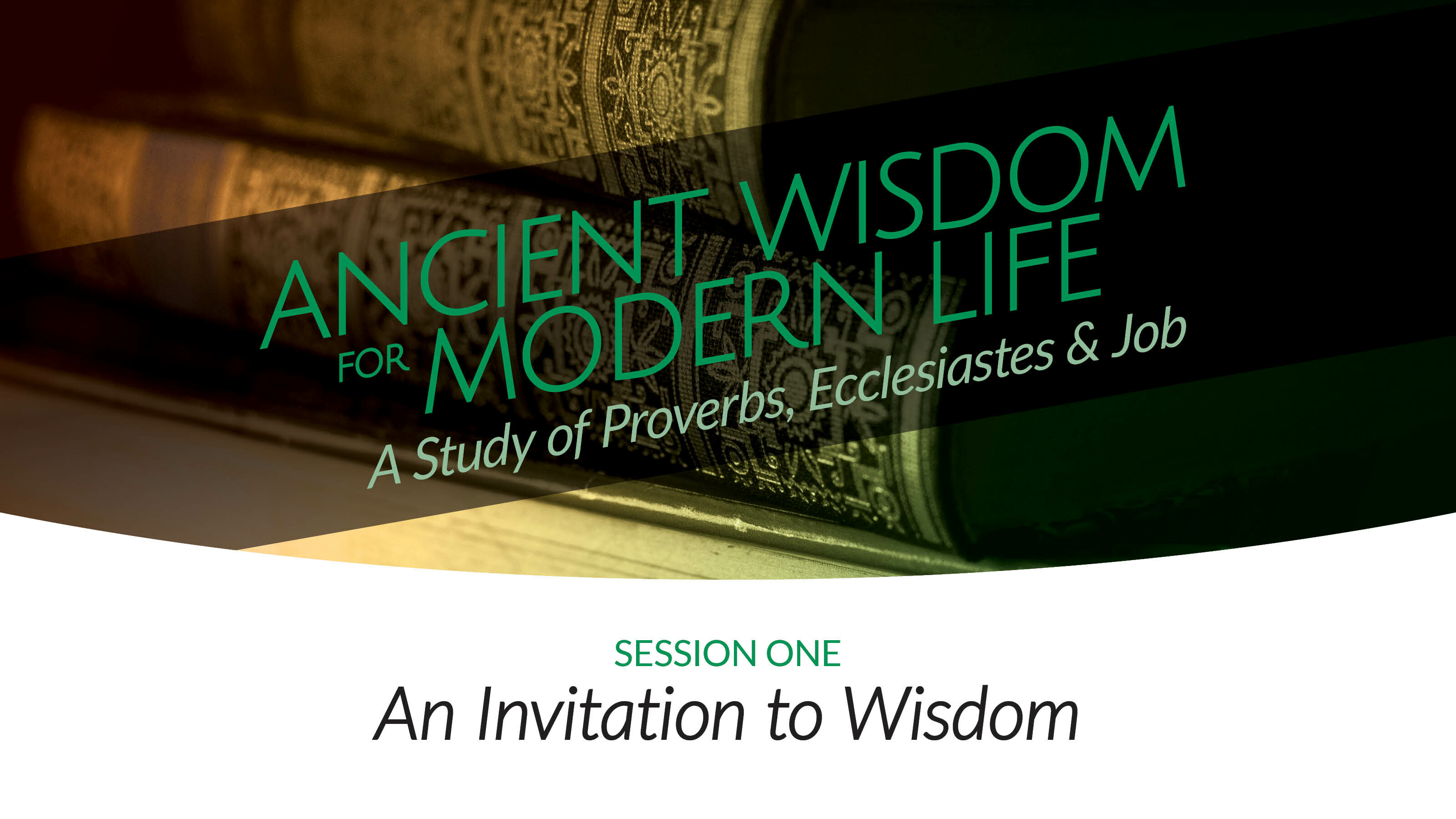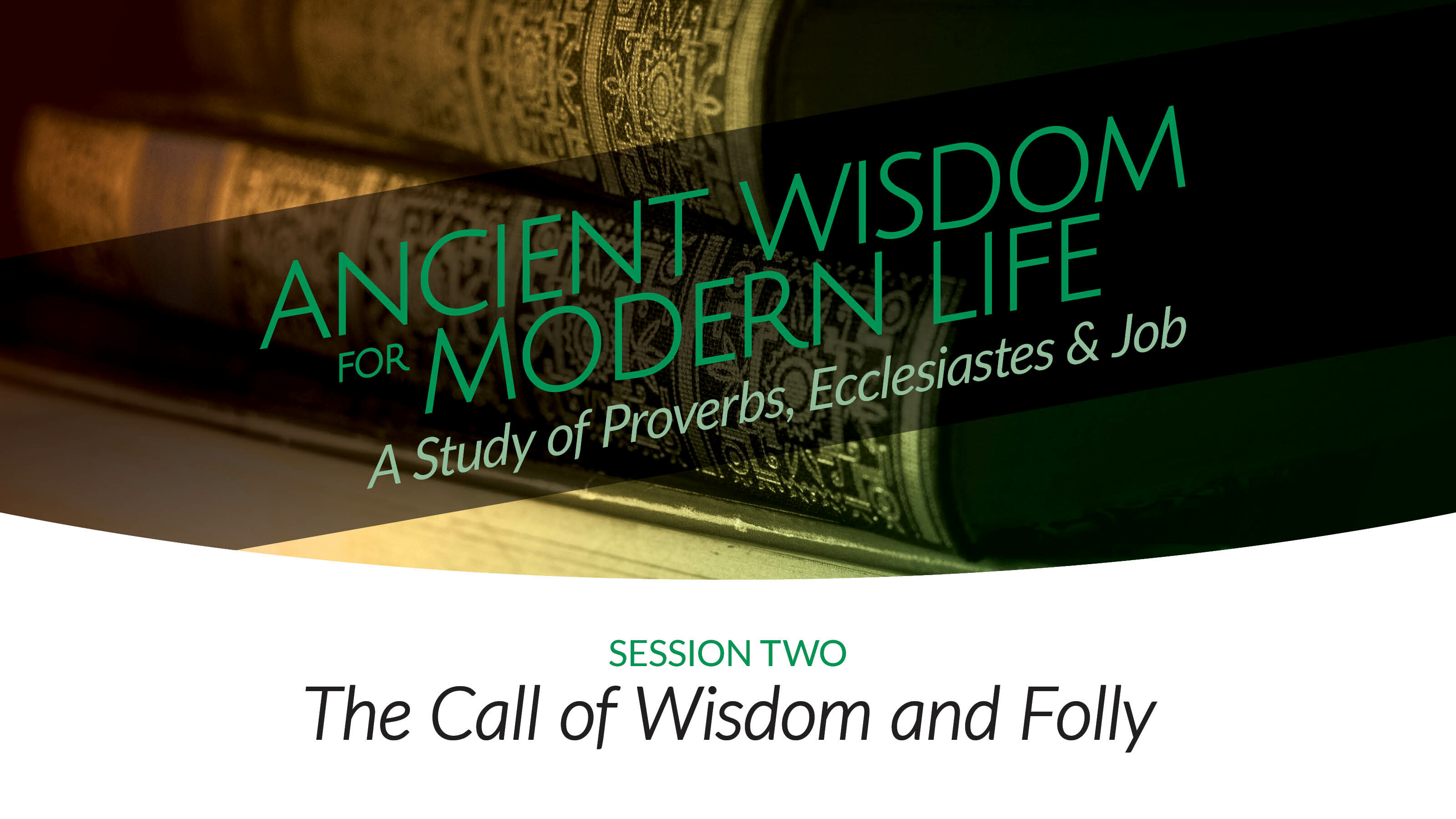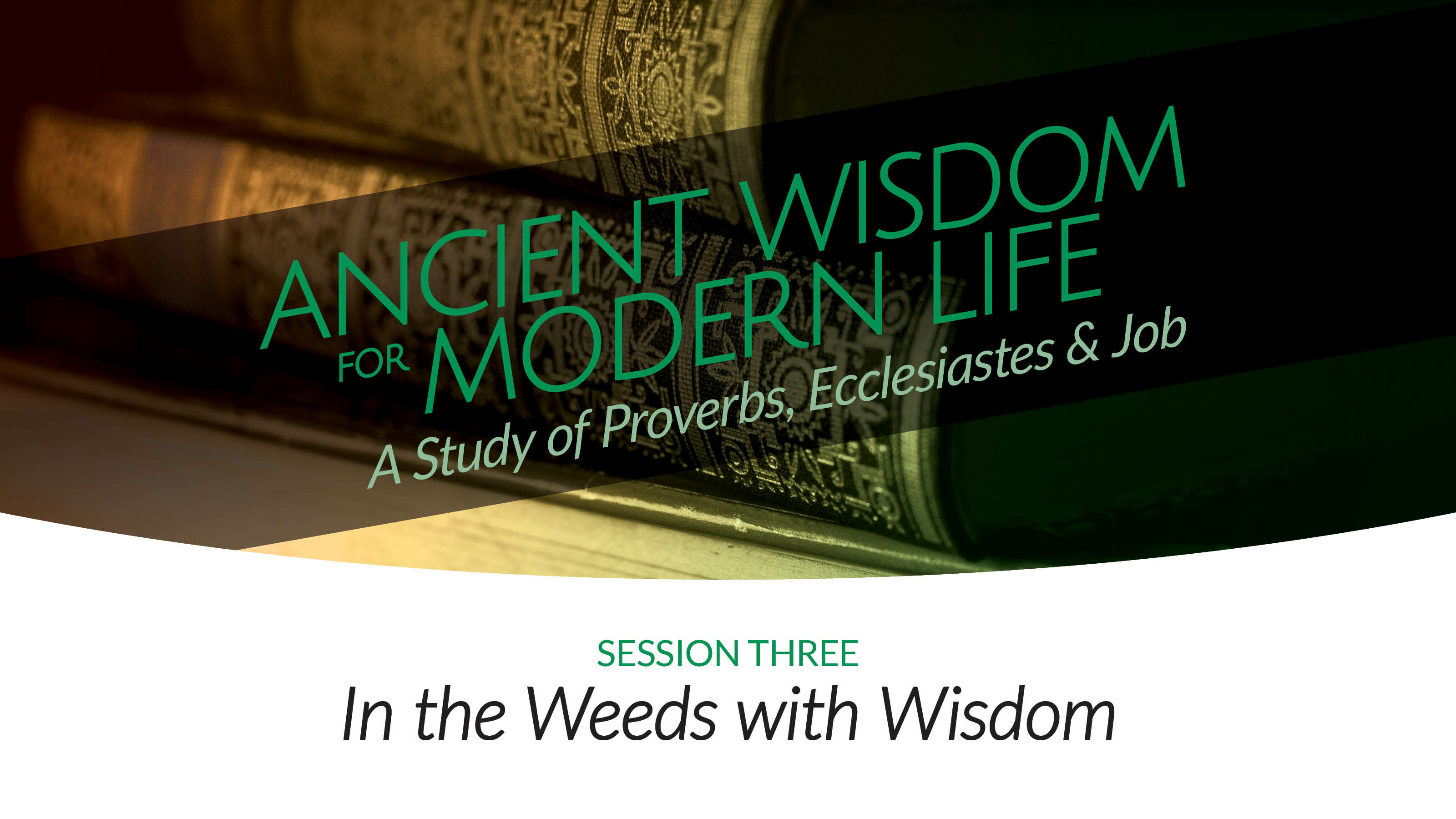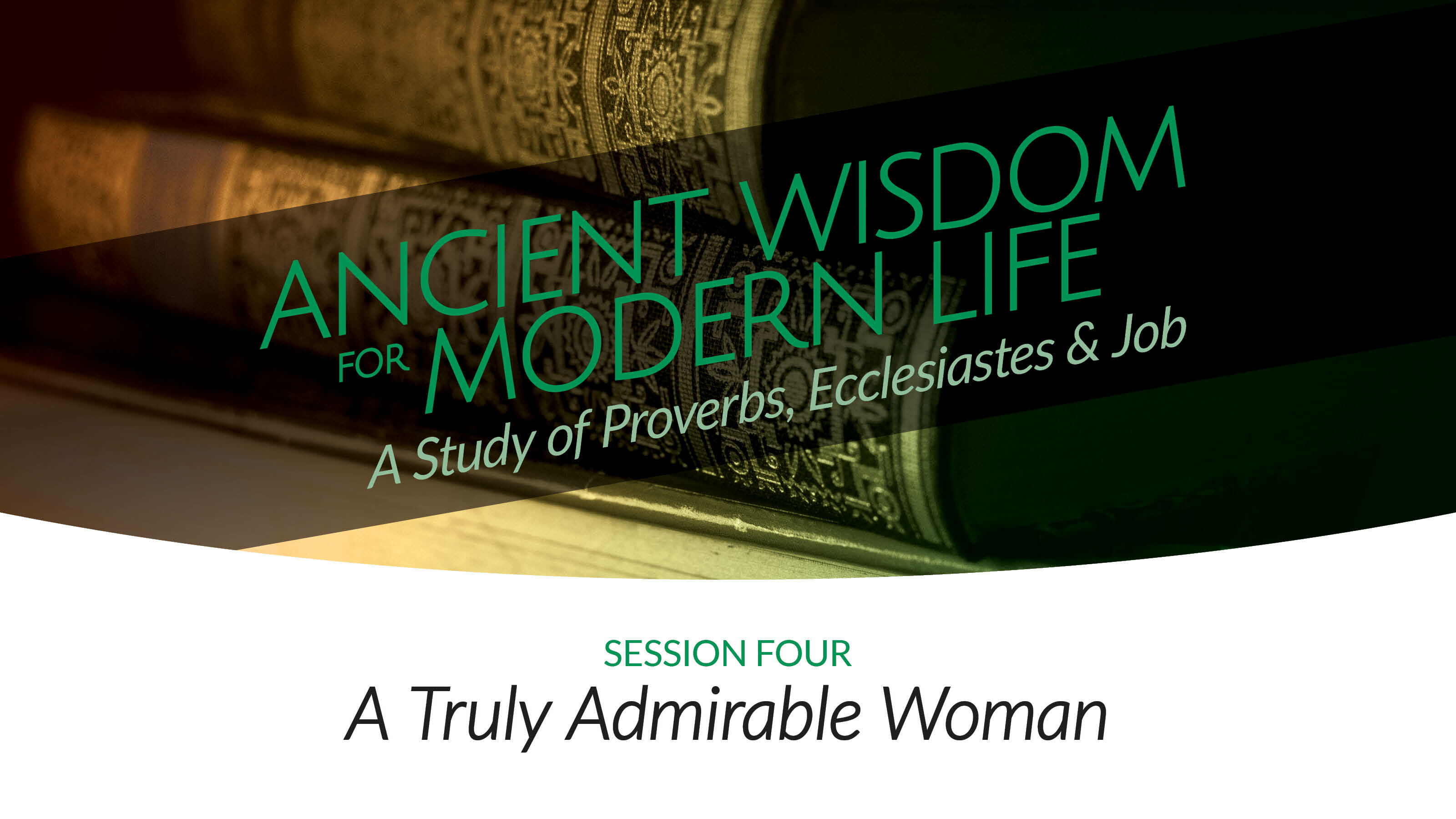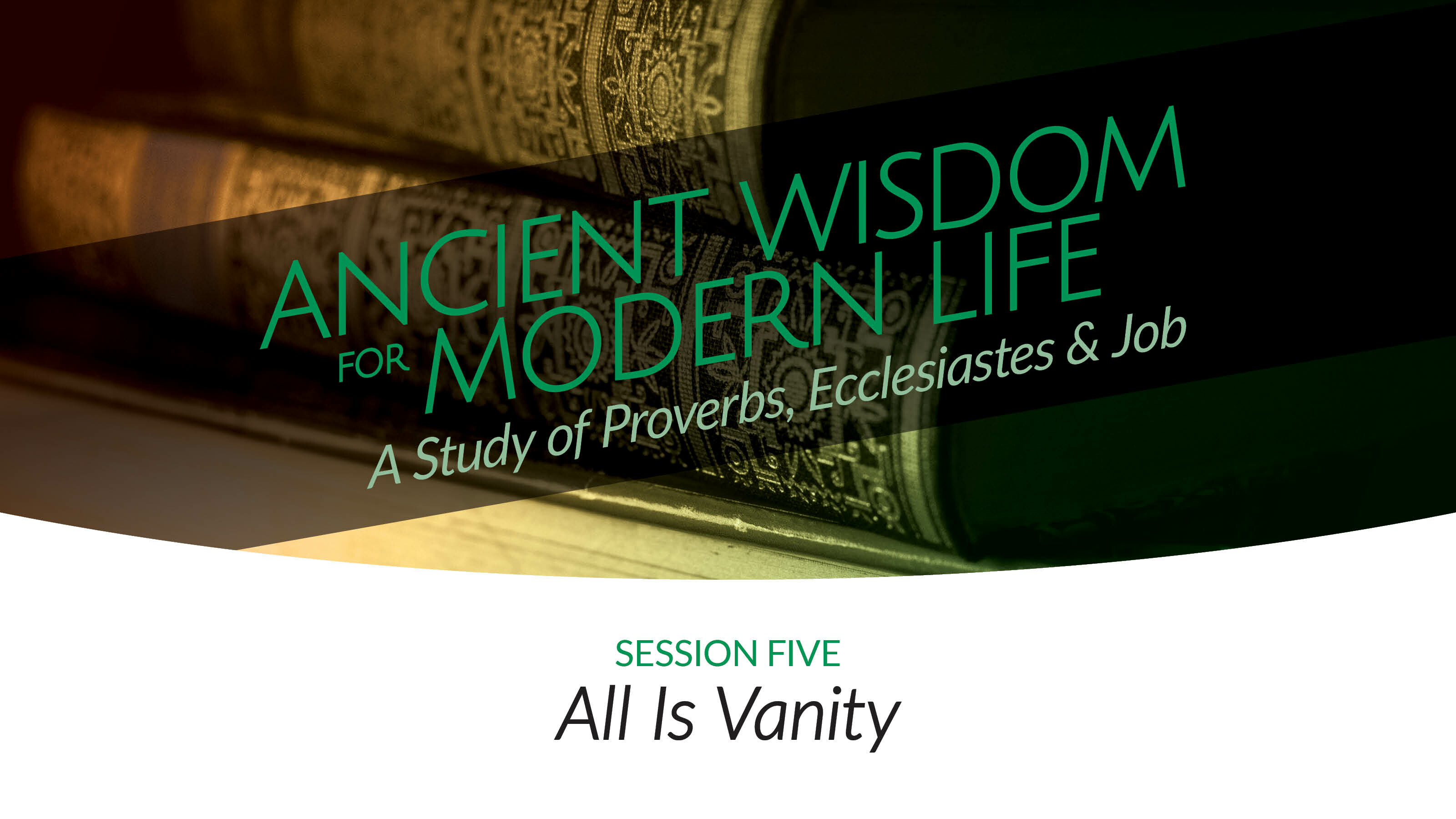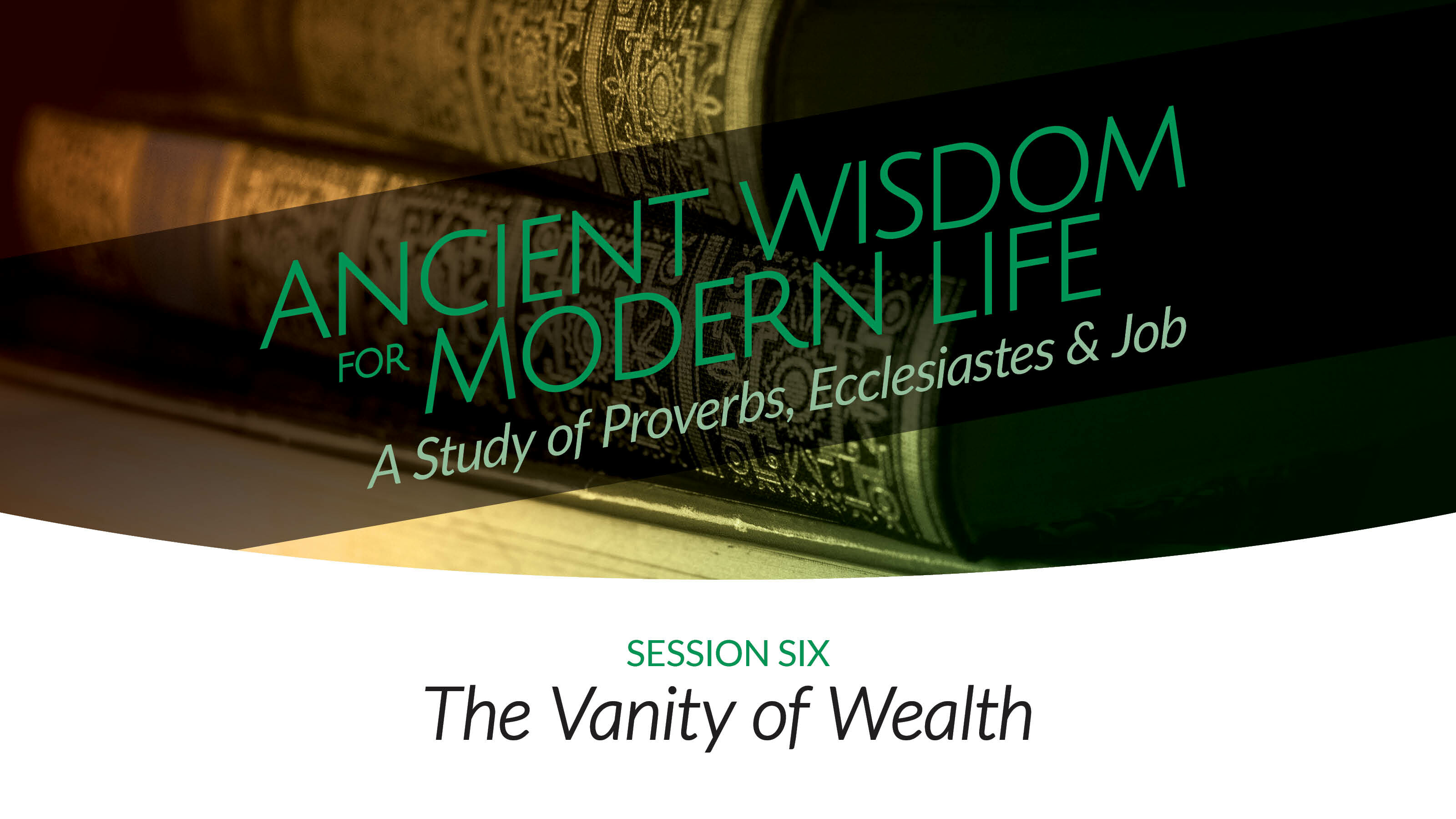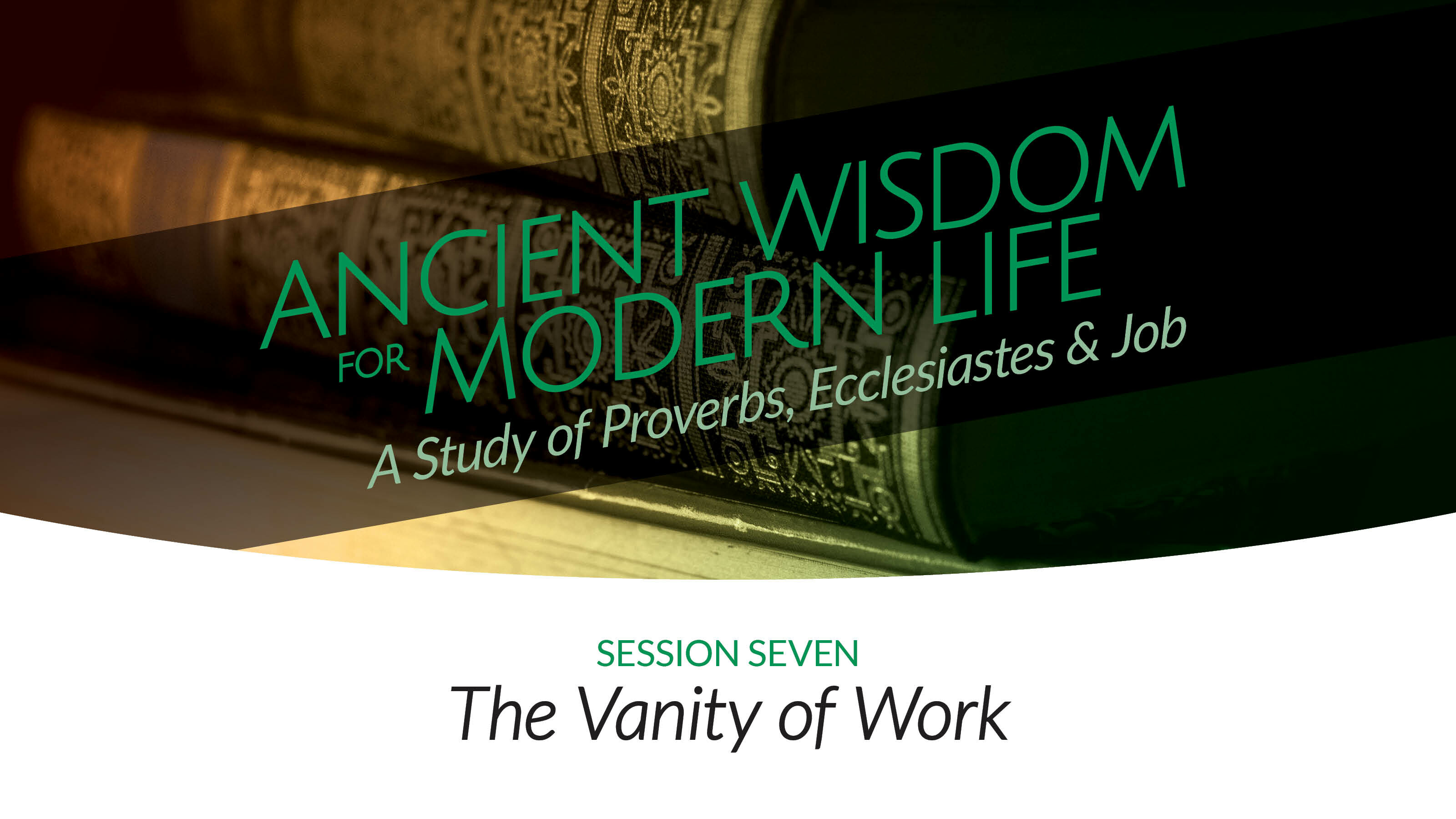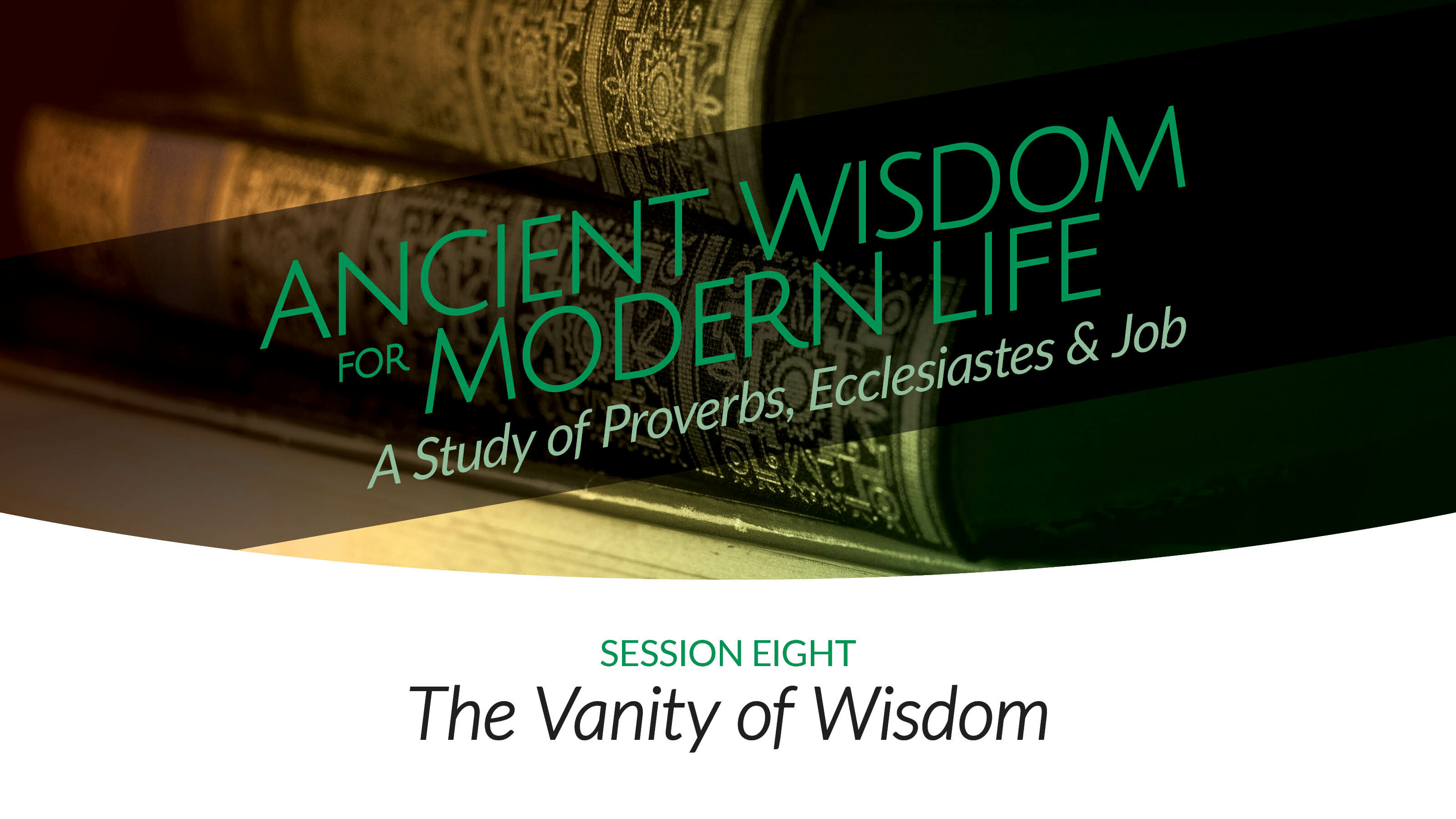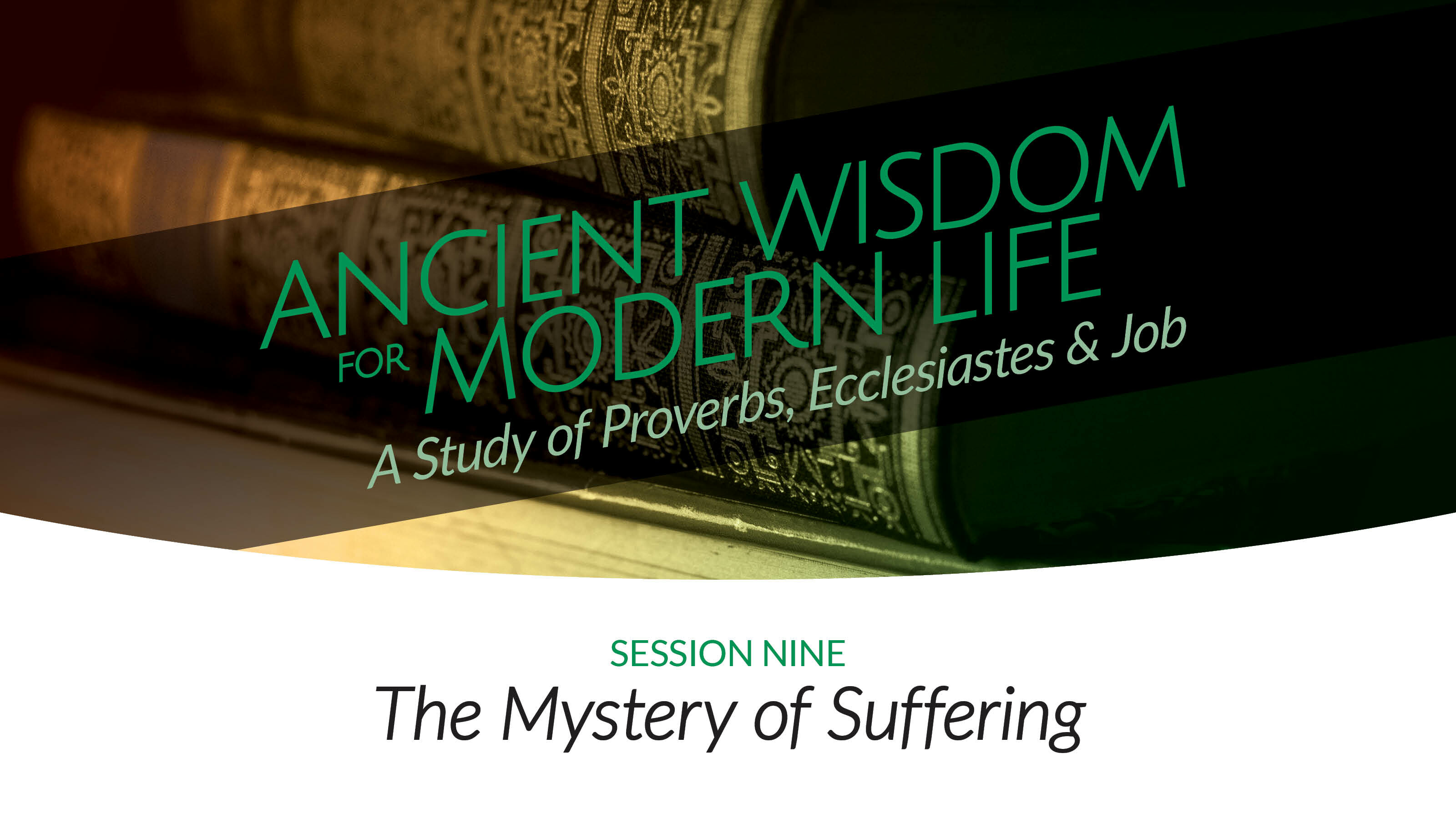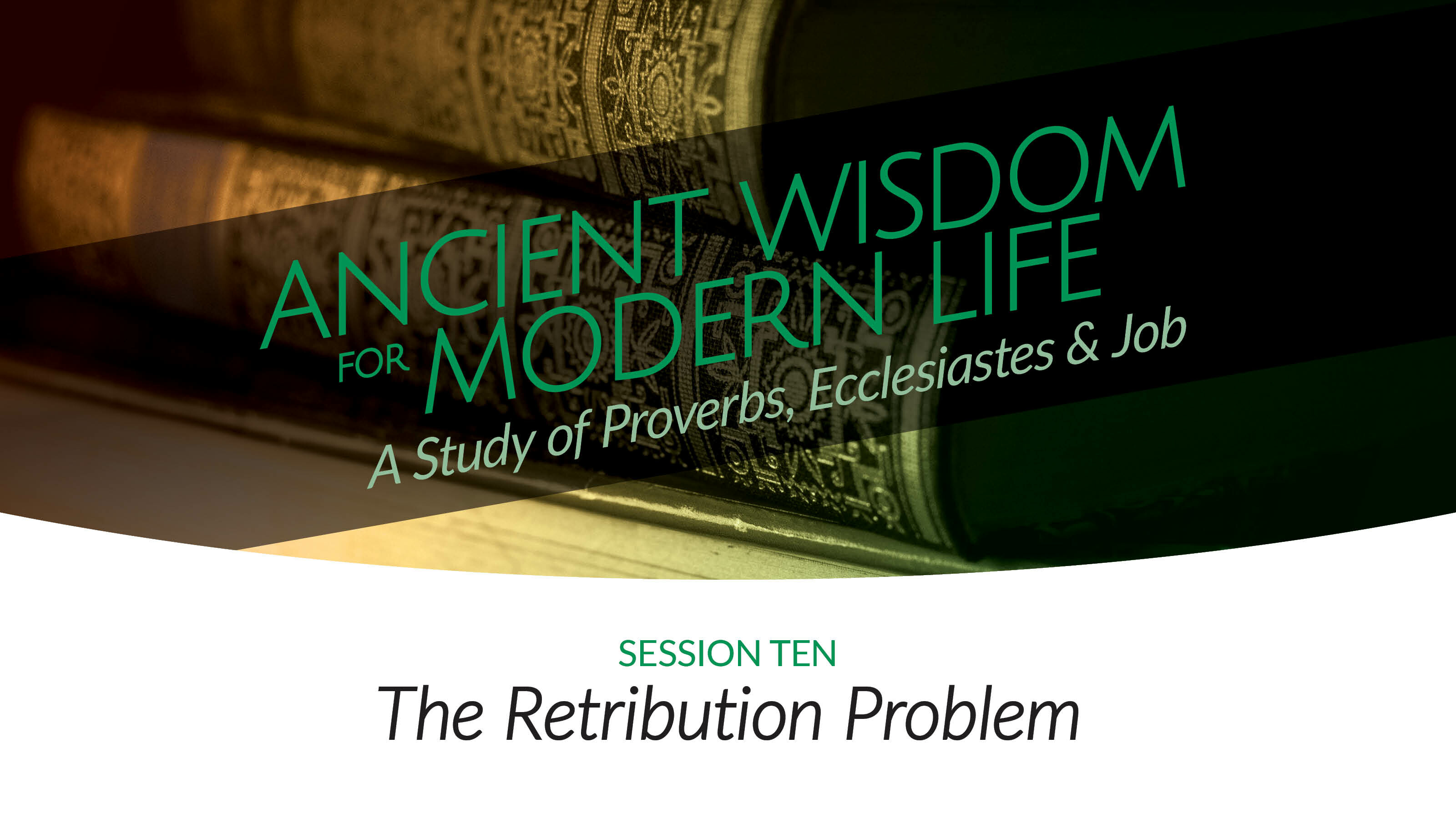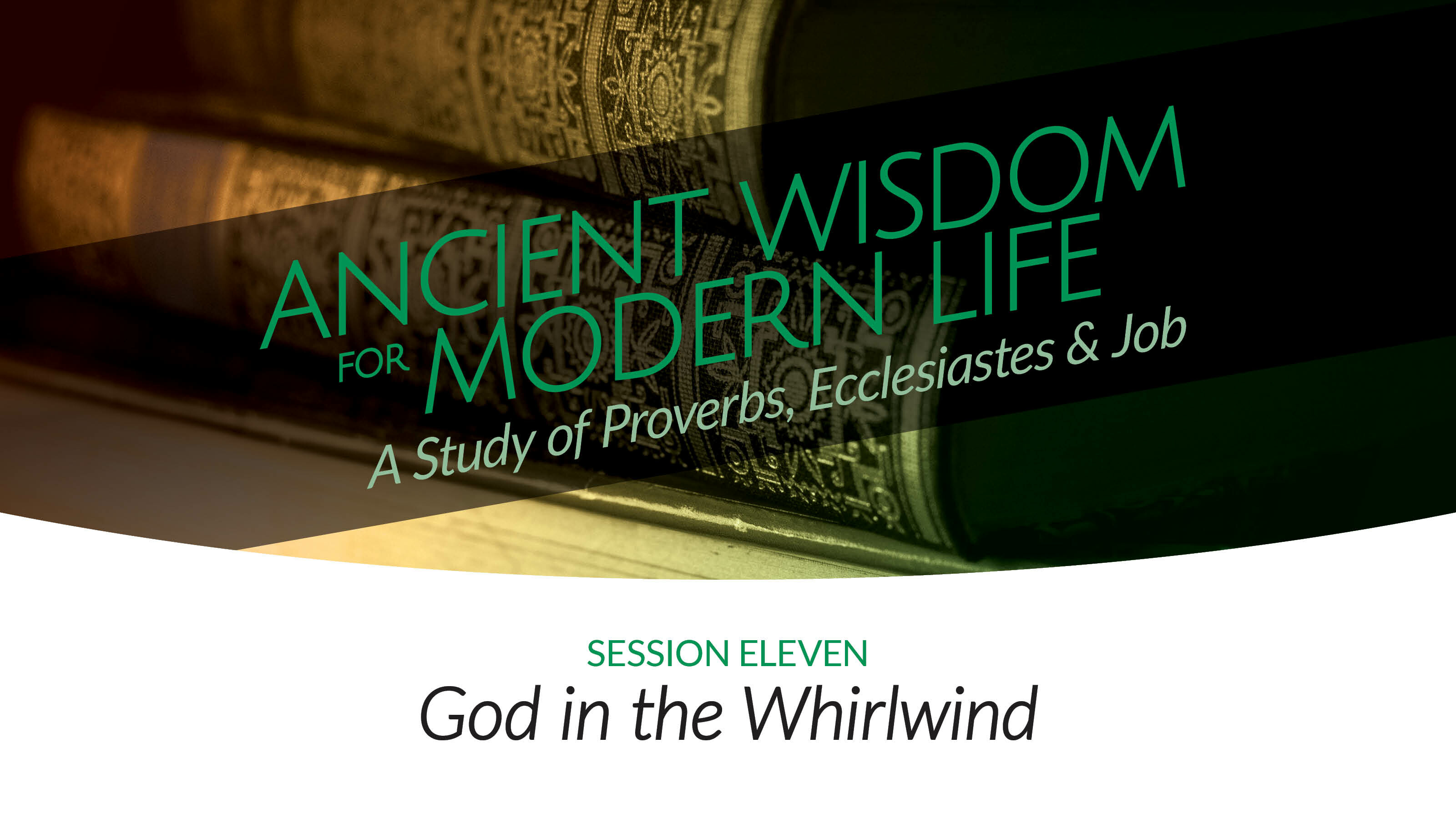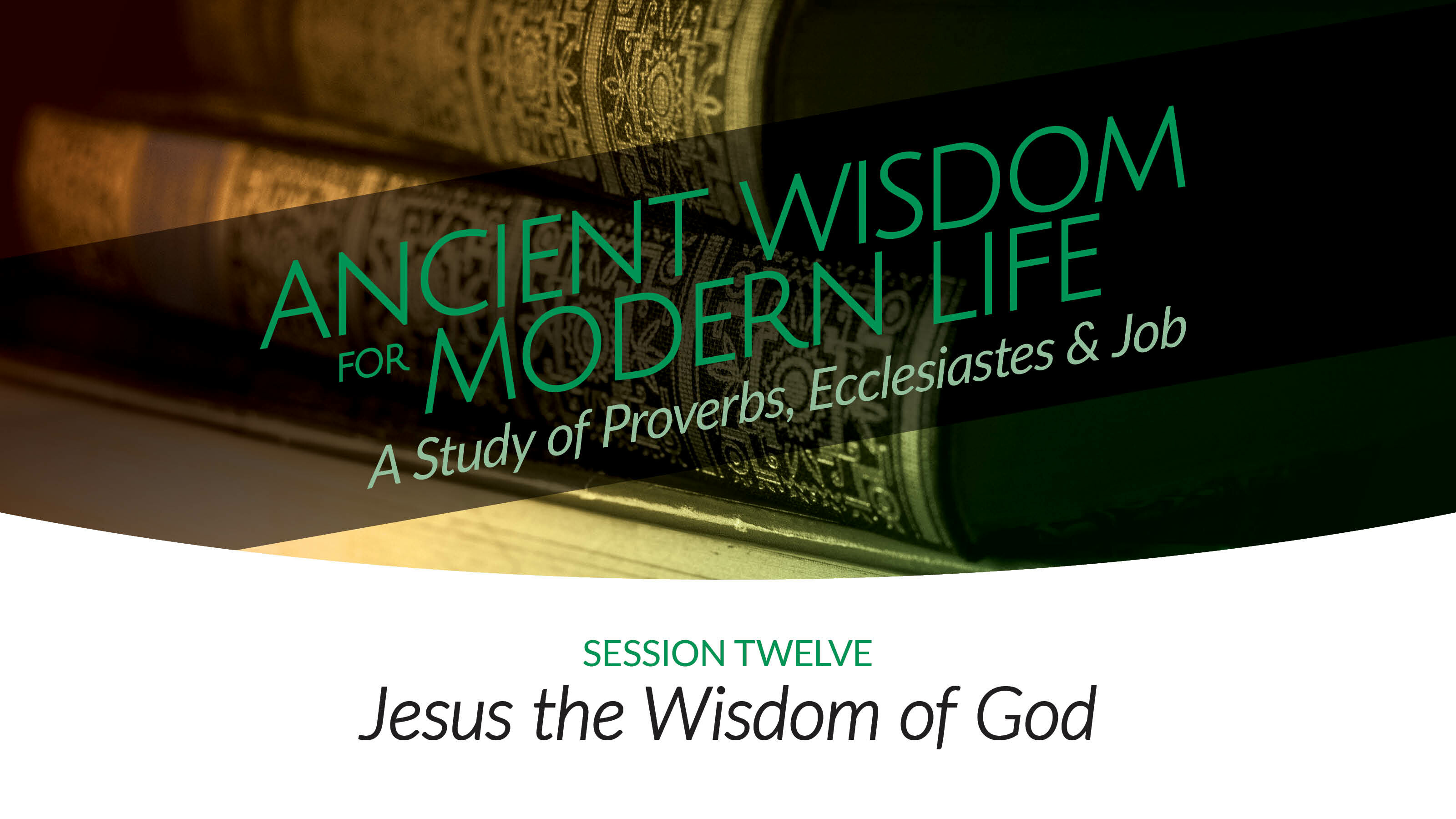Still can't find what you are looking for? Let us know how we can help.
Use the login below to access your InFellowship account.
Need an account?
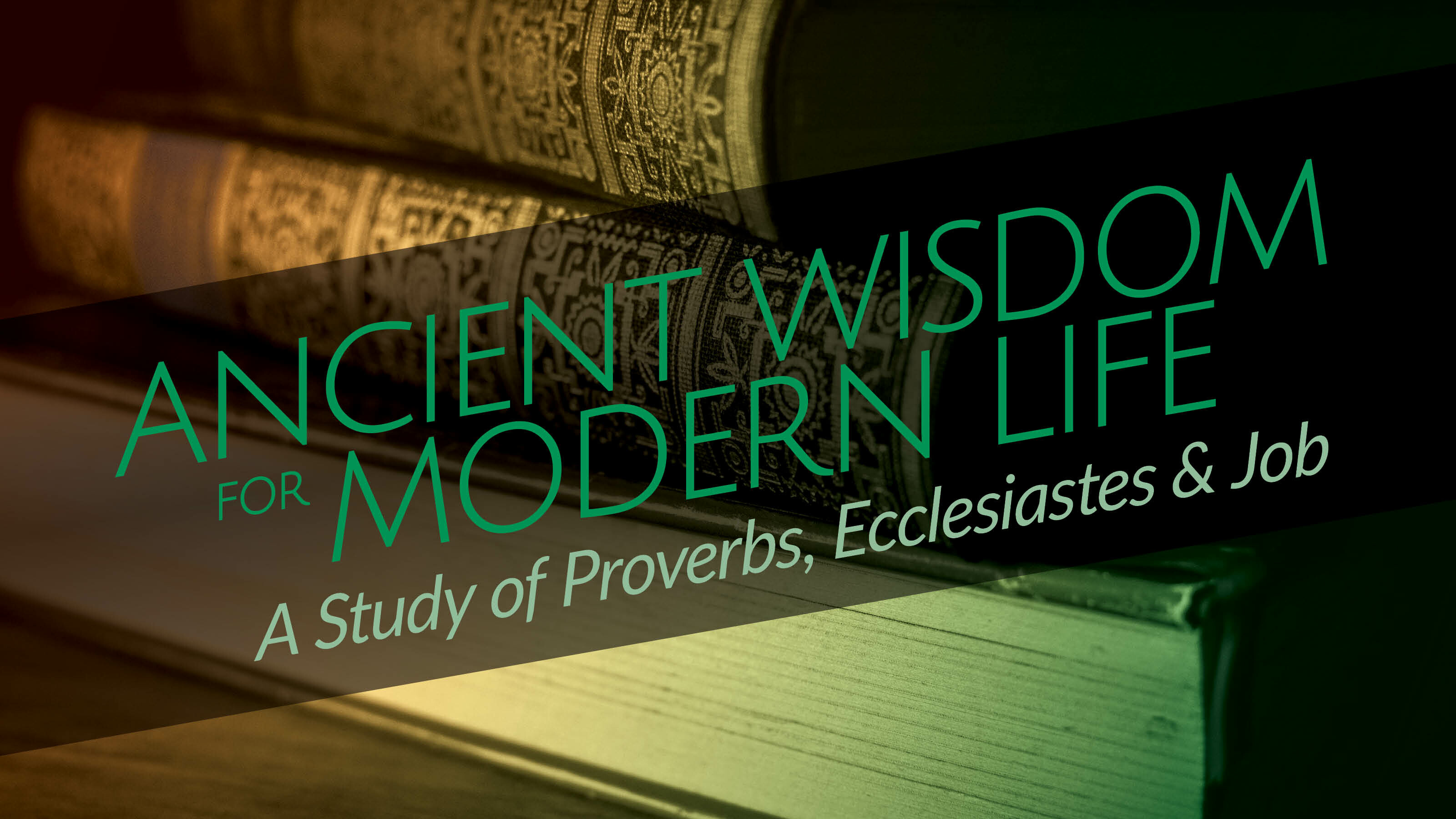
Study Description
"Where shall wisdom be found?" Job asks this very question as he ponders how to make sense of life in the midst of a terrible crisis. And his question still resonates with us today. What is the meaning of our lives? How can we navigate life well amidst crises? What guidance has God given us?
We explore these ultimate questions in this semester study of the Bible's wisdom literature—Proverbs, Ecclesiastes, and Job. Discover what ancient wisdom has to say to modern life.
Details
- Length: 12 sessions
- Teachers: The Rev. Dr. Jonathan Bailes, The Rev. Bryan Biba
- Leader's Guide: Discussion questions are available for small group leaders.
Access Leader's Guide
Watch the Series
1. An Invitation to Wisdom
This week’s lesson introduces the topic for our study—wisdom—by asking some basic questions about the nature of wisdom in the book of Proverbs: What is wisdom? Where does wisdom come from? And why communicate wisdom through proverbial sayings?
2. The Call of Wisdom and Folly
In this lesson, we turn our attention to two competing voices that call for our attention in Proverbs 1-9 and two rival ‘ways’ by which we live: the way of wisdom and the way of folly. How do these two voices still call to us today? Which way will we choose?
3. Getting in the Weeds with Wisdom
This week we examine a number of case studies from Proverbs 10-30 in order to learn how wisdom should be applied to the particular circumstances of our life. What kind of truth is proverbial truth? And why is virtue necessary for living wisely in the world?
4. A Truly Admirable Woman
This week, we focus our attention on the ‘noble woman’ described in Proverbs 31. This noble woman is not simply a model of a good wife; she is an embodiment of wisdom itself, a heroic exemplar that we are meant to admire and emulate.
5. All Is Vanity
On the surface, Ecclesiastes seems to be a book of despair: “Vanity of vanities, all is vanity.” But a closer read reveals it to be a sophisticated critique of common ways of finding meaning and happiness without God that directs our attention back to the absolute necessity of the gospel.
6. The Vanity of Wealth
Wealth and pleasure: these are two of the primary ways that we pursue both meaning and happiness in life today. But as we learn this week in our study of Ecclesiastes, the pursuit of happiness through wealth and pleasure is not a new phenomenon. It is very old indeed.
7. The Vanity of Work
According to the writer of Ecclesiastes, work is like wealth. It is vain. If we look to it to provide meaning and happiness, it will inevitably disappoint us. So how can we relate to work wisely? What is the difference between good and bad work? How do we work well?
8. The Vanity of Wisdom
No matter what challenge may come our way, we human beings can use our technological abilities and scientific knowledge to overcome it. Or at least that’s what we tell ourselves. In the book of Ecclesiastes, we discover that human wisdom has limits, that even the wisest among us are subject to the ravages of a fallen world, and that the vanity of life extends even to wisdom itself.
9. The Mystery of Suffering
Living wisely means living well in a world that is both good and fallen. That is easy to say, but it is very difficult to actually do, especially when the fallenness of the world intrudes into our lives in the form of pain and suffering. What could it possibly mean to be “wise” in the way that we respond to suffering and grief?
10. The Retribution Problem
Living wisely requires us to seek out wise counsel. In response to his suffering, Job seeks counsel from three friends, who attempt to make sense his trials by using retribution theology, a common and yet ultimately foolish response to suffering. But despite their foolish counsel, the failures of Job’s friends teach us what it means to read scripture well in light of suffering.
11. God in the Whirlwind
Near the end of the book of Job, God speaks out of a whirlwind. What he says, however, has puzzled generations of readers and have led many to wonder whether His speech addresses Job’s complaints at all. In this lesson, we will study what God says to Job in order to understand how this book equips us, not to have all our questions answered, but to endure through suffering with hope.
12. Jesus the Wisdom of God
For twelve weeks we have studied the wisdom literature of the Old Testament. This week we turn our attention to the New Testament and the person of Jesus and ask the question: What is the relationship between the wisdom of Jesus and the wisdom of Proverbs, Ecclesiastes, and Job? How does Jesus help us understand them better and how does he help us live more wisely today?
![]()
Find "Christ Church Studies" on Your Podcast Provider
Never Miss a Podcast
Get an email notification whenever Christ Church Plano releases new video and audio content on podcast or livestream. Customize which notifications you would like to receive.
